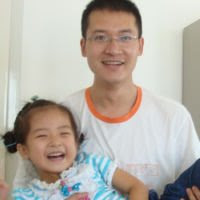
Drinks brand Innocent has stopped using polylactic acid (PLA) in its packaging and is switching to 100% recycled plastic bottles.
The firm said it had looked at the pros and cons of PLA and had talked to industry experts, but felt it was better to work with waste material, such as recycled plastic, than to create bottles from new materials.
Innocent tested its Breakfast Thickie in a PLA bottle, but said it was "not quite the right material" because it did not use any waste materials, and because commercial composting was "not yet a mainstream option" in the UK.
Innocent claimed a world first when it put four of its fruit Smoothies in 100% recycled PET bottles last month.
It expects to switch the rest of its range, including the Breakfast Thickie, to the material by January 2008.
Innocent said PLA bottles could also add costs to recycling operations and, in some cases, prevent recycling of conventional plastics.
The company was criticised by this week's Independent on Sunday for claiming that bottles made from PLA could be put into a home recycling box next to PET bottles.
The newspaper said PLA would contaminate the batch and could result in the reprocessor being unable to sell the plastic.
Innocent said that, according to the Waste and Resources Action Programme (Wrap), it was possible to have small amounts of PLA in with PET recycling.
"Wrap supported the levels used in the trial, but the recycling industry is now reporting that it is finding it hard to cope with PLA," said the firm.
Innocent added that it also checked about the use of genetically modified corn in PLA, and knew there was "no possibility of contamination from the plastic", so it opted for a scheme "where they offset any GM corn with a tonne of non-GM corn".
The firm said it had looked at the pros and cons of PLA and had talked to industry experts, but felt it was better to work with waste material, such as recycled plastic, than to create bottles from new materials.
Innocent tested its Breakfast Thickie in a PLA bottle, but said it was "not quite the right material" because it did not use any waste materials, and because commercial composting was "not yet a mainstream option" in the UK.
Innocent claimed a world first when it put four of its fruit Smoothies in 100% recycled PET bottles last month.
It expects to switch the rest of its range, including the Breakfast Thickie, to the material by January 2008.
Innocent said PLA bottles could also add costs to recycling operations and, in some cases, prevent recycling of conventional plastics.
The company was criticised by this week's Independent on Sunday for claiming that bottles made from PLA could be put into a home recycling box next to PET bottles.
The newspaper said PLA would contaminate the batch and could result in the reprocessor being unable to sell the plastic.
Innocent said that, according to the Waste and Resources Action Programme (Wrap), it was possible to have small amounts of PLA in with PET recycling.
"Wrap supported the levels used in the trial, but the recycling industry is now reporting that it is finding it hard to cope with PLA," said the firm.
Innocent added that it also checked about the use of genetically modified corn in PLA, and knew there was "no possibility of contamination from the plastic", so it opted for a scheme "where they offset any GM corn with a tonne of non-GM corn".
Source: packagingnews

No comments:
Post a Comment